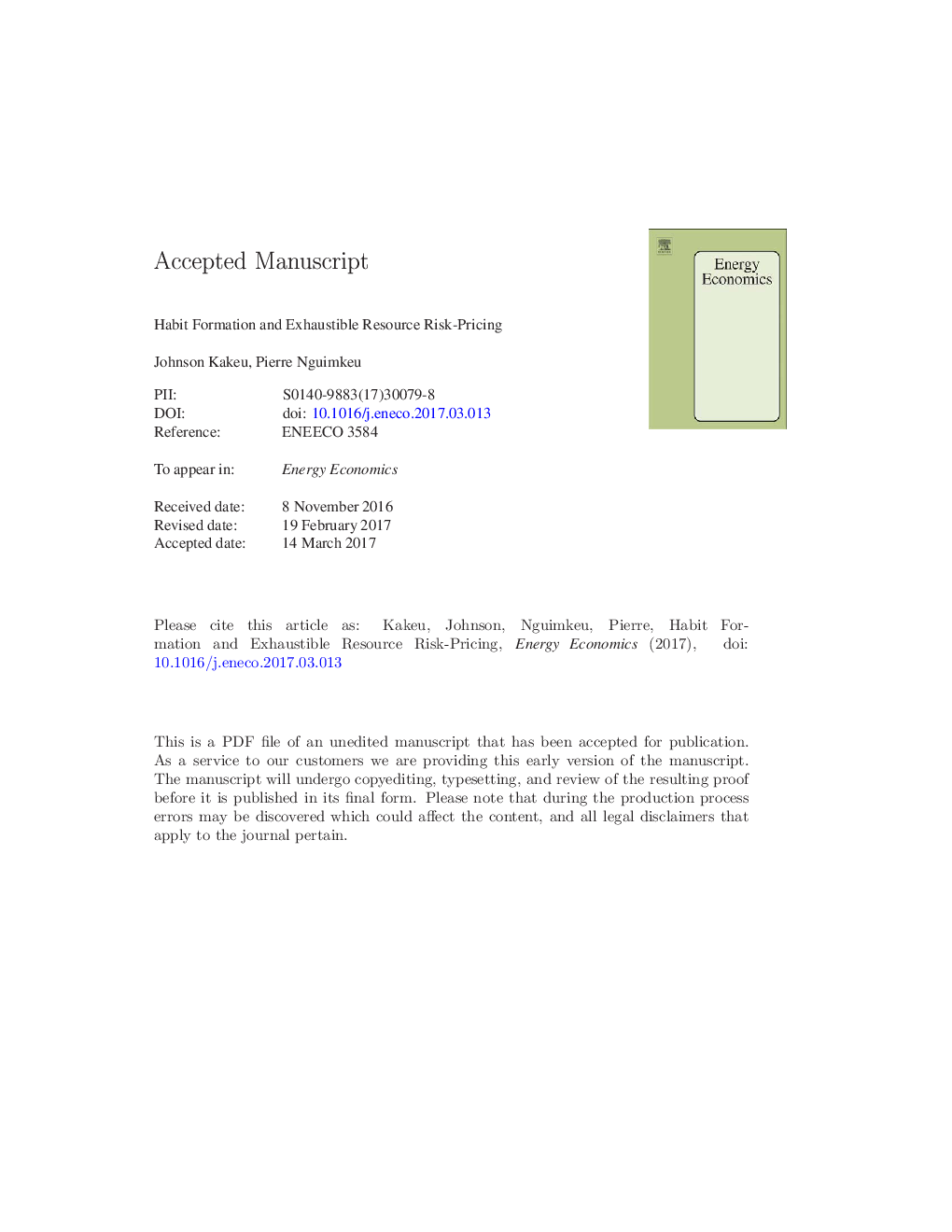ترجمه فارسی عنوان مقاله
تشکیل عادت و ارزیابی خطر قیمت منابع انسانی
عنوان انگلیسی
Habit formation and exhaustible resource risk-pricing
| کد مقاله | سال انتشار | تعداد صفحات مقاله انگلیسی |
|---|---|---|
| 139386 | 2017 | 34 صفحه PDF |
منبع

Publisher : Elsevier - Science Direct (الزویر - ساینس دایرکت)
Journal : Energy Economics, Volume 64, May 2017, Pages 1-12
ترجمه چکیده
در این مقاله، پیامدهای قیمت گذاری ریسک معرفی شکل گیری عادت در مصرف در مدل مورد بررسی قرار می گیرد که شامل رشد با منابع غیر قابل بازیافت و بازارهای سرمایه می شود. نشان داده شده است که بازده مورد انتظار در سهام منابع غیر قابل بازیافت، شامل عوامل خطرساز کوتاه مدت و بلند مدت می باشد. فاکتور ریسک کوتاه مدت با شوک برای رشد مصرف مازاد فعلی همراه است. فاکتور ریسک درازمدت نشان دهنده تمایل سرمایه گذار برای جلوگیری از شوک های طولانی مدت به چشم انداز مصرف اضافی در آینده (ریسک ریسک عادت درازمدت) است. این مدل با استفاده از شاخص کالاهای انرژی و داده های کل مصرف واقعی سرانه ایالات متحده آزمایش شده است و نتایج نشان می دهد که عادت در معادله قیمت گذاری به طور قابل ملاحظه ای با در نظر گرفتن ضریب ریسک متغیر زمانی طولانی وارد می شود. در مقایسه با نتایج بدست آمده با مدل شکل گیری عادت (ترجیحات زمانی جداگانه)، ما دریافتیم که چشم انداز آینده بلندمدت مصرف مازاد، یک عامل خطر پیش بینی کننده ای است که باید در توضیح پویایی قیمت های انرژی در عدم قطعیت مورد توجه قرار گیرد .

